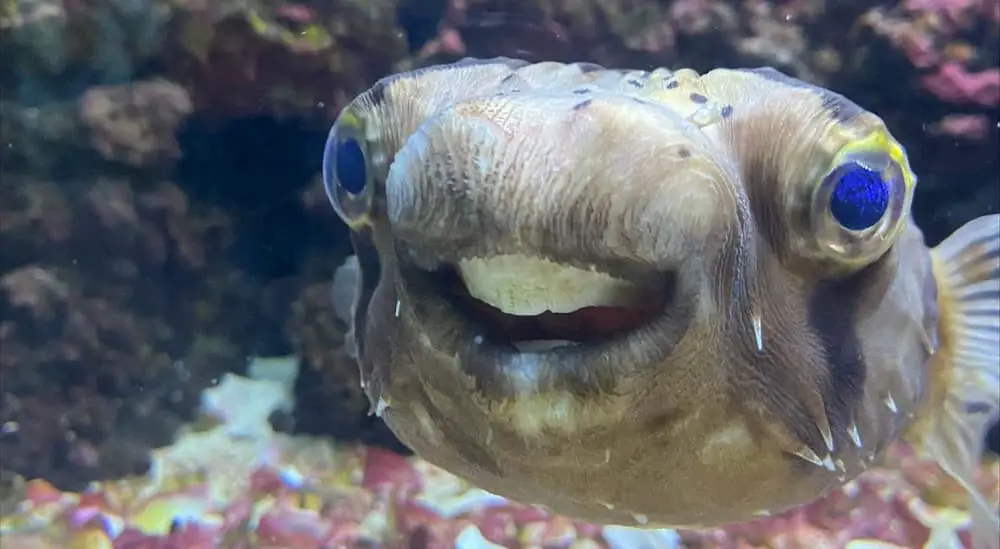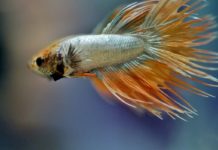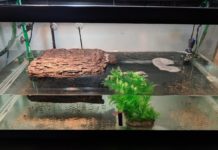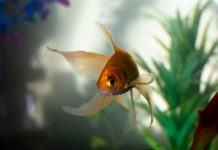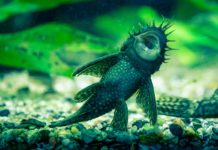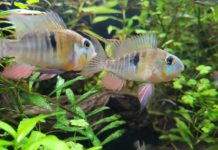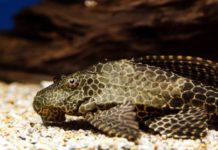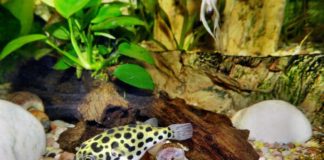If you’ve noticed that your porcupine puffer isn’t eating, then there’s a good chance that it’s caused by stress.
Porcupine puffers are known for going through periods of not eating, when they become stressed, which is strange as fish are known for naturally wanting to eat all the time.
It’s important that you determine the reasons your Porcupine puffer isn’t eating, so you can address and fix the problem as quickly as possible.
Why Your Porcupine Puffer Isn’t Eating?
There could be so many reasons why your porcupine puffer isn’t eating. The main reason why they aren’t eating is likely due to an illness or stress. Normally, this can be caused by poor water conditions and a lack of maintenance being performed on the tank. If your tank’s water levels are within the proper parameters, then your puffer will have a much better chance of staying healthy and you can rule this out as the problem.
Poor Water Quality
A leading cause for a puffer to stop eating is because of poor water quality.
Porcupine puffers can be sensitive to changes in water parameters and it’s important to maintain certain levels within a range that will keep them and their tankmates healthy.
It’s important to test your levels regularly to keep on track off with water changes and routine maintenance duties. Some of the most important levels to keep track of include PH, temperature, nitrate, phosphate, and ammonia.
Poor water quality can be stressful for a porcupine puffer, causing them to become unhealthy and sick.
Stress
Stress with saltwater fish is very common, however, it’s a very common problem for porcupine puffers not eating. It can be caused by something small, including a slight change in water quality, being bullied by other tankmates, low oxygen levels, or another recent change in the tank.
Other reasons include:
- High ammonia levels
- Low or high salinity
- Too small tank size
- Too many fish in the tank
- Medications
- Temperature fluctuations
In most cases, mild stress can be addressed without a problem. If your puffer is under severe stress levels, they can easily get sick and refuse to eat.
If you’ve added a recent addition to the tank, or even if the porcupine puffer has been in the tank for a long time, check for signs of stress as this can cause the puffer to not eat.
Overfeeding
Another reason your puffer mightn’t be eating could be because of overfeeding the tank.
Overfeeding can be a common problem and it’s common for many people to feed their fish too much.
If your puffer is getting too much food, not only will it cause poor water quality, but they can get sick and stop eating.
Your porcupine puffer won’t eat when they’re full and it’s important to only feed them the proper amount of food each day.
Overfeeding can also cause bloating and constipation for any fish.
It’s recommended to feed your tank a few amounts throughout the day. Any foods that are unwanted should be removed from the tank to prevent the tank from becoming decayed and causing poor water quality.
Wrong Food
As not all saltwater fish eat the same foods, if you’re providing the porcupine puffer with the wrong food, chances are they won’t eat it.
A Porcupine puffer requires a varied diet of meaty foods including krill, squid, clams, and hard-shelled shrimp.
Overgrown Teeth
Porcupine puffers’ teeth are always growing. Their teeth sometimes referred to as beaks, must constantly be ground down by the consumption of hard-shelled foods.
If your puffer’s teeth become overgrown, they simply won’t be able to eat and will starve or require delicate dental surgery and unfortunately, there are only a few veterinarians that would be willing to perform this type of treatment. To keep your puffer’s teeth grounded down, always be sure to feed him plenty of shell-on seafood, at least a few times a week. While many Porcupine puffers will crunch on ground coral just for fun, you can’t count on all of them to do it enough to keep their teeth properly trimmed.
Conclusion
As you can see, there can be many reasons why your Porcupine puffer may not be eating. The most common reason could be down to stress, which can be caused by poor water quality and this can be addressed by performing water changes and increased water testing. If your water quality is good, try to determine if anything new has recently changed within the tank’s environment.
Providing good quality foods that are specific to the porcupine puffer is crucial for keeping them on the proper diet, which will keep them healthy and eating every day.

